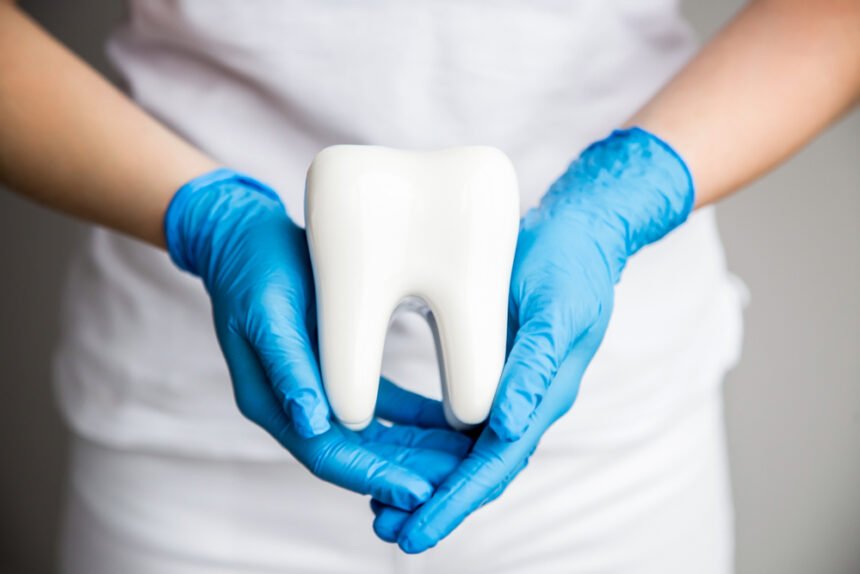Do you practice proper oral hygiene? It might not seem like a big deal to skip flossing or brushing once in a while, but you can actually impact your overall health as a result. There are various links between our oral and overall wellness you might not realize exist.
Here’s a look at how your oral health can point to other medical conditions.
1. Bacteria Cause Various Illnesses
If you’ve ever had strep throat, you’ve experienced a bacterial infection. Usually, bacteria come into the body through the mouth, nose and eyes. These pathogens are often harmless, and your immune system can combat the bad ones. There’s still a chance you’ll fall sick, though, especially when you don’t prioritize your oral health.
Those who don’t practice proper brushing and flossing can’t kill the harmful bacteria in their mouths. This bacteria accumulates at higher rates, which means you’re more at risk for ailments like gum disease and tooth decay. If you have an oral infection, you might end up with a systemic condition in another area, such as your cardiovascular system.
Therefore, you need to prioritize your oral hygiene so you can avoid bacteria buildup that might lead to a more significant health issue.
2. Some Diseases Affect Teeth and Gums
Alternatively, you can also use your oral health to identify underlying diseases you might have. How does that work? If you spot symptoms like bleeding gums, tooth loss or mouth sores, you could have a different concern you need to address. You need to realize that problems can go well beyond periodontal disease.
Let’s take a look at a few examples. Diagnoses like HIV/AIDS, osteoporosis, Alzheimer’s disease, rheumatoid arthritis and diabetes can all have oral-related impacts. There are also effects that can occur as a result of eating disorders like anorexia and bulimia.
It’s crucial to disclose any medical conditions you might have to your dentist. If you notice oral health issues even though you diligently brush and floss, you should speak with them as soon as possible. There’s a chance you have a more serious general health condition.
3. Medications Can Impact Saliva Production
Do you take any medications? If so, you need to pay extra attention to your oral wellness. Prescriptions for certain antidepressants, painkillers and decongestants can have side effects that impact your teeth and gums. That’s primarily due to how they inhibit saliva flow.
Humans need saliva to neutralize harmful bacteria acid in the mouth. Without spit, we’d be a lot more uncomfortable and unhealthy — and we’d have issues with bad breath, as well. If you’ve noticed oral health problems, you might want to ask your doctor about another medication you could take. This way, you can prevent potential general wellness issues down the line.
4. Immune Systems Play a Role
Keep in mind that your immune system plays a role in your health, as well. If you have a compromised immune system, you’re subject to various illnesses because your body doesn’t have a strong guard. That’s concerning for obvious reasons, especially regarding conditions you may develop due to poor oral hygiene.
It’s also crucial to understand how oral health can weaken your immune system. If your immune system has to fight off bacteria from gingivitis, you probably won’t be able to combat other diseases because the condition suppresses immunity. Put a different way, you can’t attack a second threat when your defenses are already occupied with the first.
That’s why oral hygiene matters. If you want to avoid getting sick, you need to keep the harmful bacteria in your mouth at bay. This way, your immune system can reserve itself for more serious infections that might come along.
How to Prioritize Both Oral and Overall Health
How can you ensure you avoid both oral and overall medical concerns? Keep an eye on your dental habits. If you haven’t updated your brushing and flossing routine in a while, you should:
- Floss gently before you brush.
- Brush twice a day — and don’t forget your tongue.
- Use fluoride toothpaste and alcohol-free mouthwash.
- If applicable, remember to wear your retainer.
- Drink enough water every day.
- Schedule a dental appointment every six months.
It’s also smart to point out any concerns you may have to your dentist and physician. If you spot a symptom like swollen gums or painful teeth, you should alert them as soon as possible. This way, you can potentially prevent more significant general health issues later. Otherwise, you’ll still be able to draw attention to an oral health concern, which matters, as well.
Prioritize Your Oral Health to Keep Your Overall Health in Top Shape
As you can see, you should do your best to stay on top of your oral health. If you find that something’s amiss, you might end up with a related disease or illness that stems from your poor oral hygiene habits. This information will help you keep your wellness in the best shape possible.







